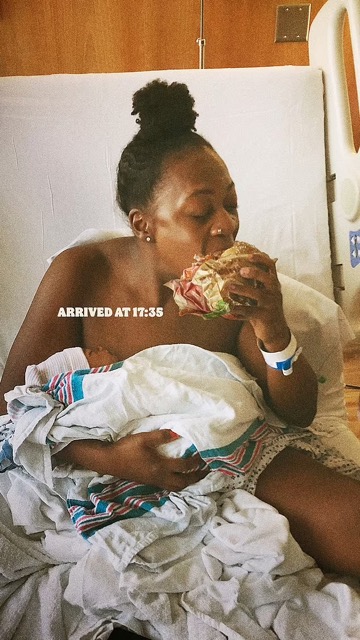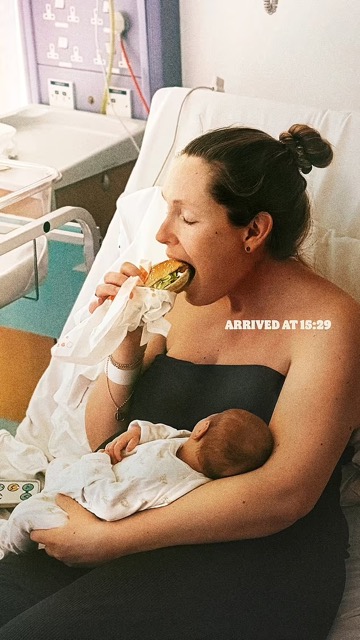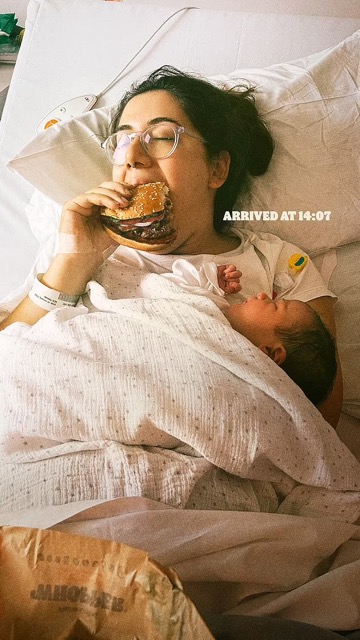Why the Burger King ‘Bundles of Joy’ Ad Hits Home for New Moms

A recent Burger King campaign featuring new mothers enjoying burgers moments after childbirth has sparked both admiration and controversy. Dubbed ‘Bundles of Joy,’ the campaign shines a spotlight on postpartum cravings and the reality of motherhood in a way that is refreshingly real, but also divisive. While some have criticized the portrayal of such personal moments for corporate branding, many mothers, including myself, find the imagery deeply relatable—because, let’s face it, after hours of labor, sometimes all you really want is a good burger.

The Appeal of the Post-Birth Burger
It turns out, craving a burger after giving birth is not that unusual. A study commissioned by Burger King and Mumsnet revealed that 39% of new mothers in the UK would have loved a burger and fries as their first meal after delivering a baby. It’s a relatable moment for many moms, as the first meal post-birth can feel like a reward for surviving one of life’s most grueling yet miraculous experiences.
Personally, I can recall craving Domino’s pizza after giving birth. I vividly remember those hours of intense hunger, fatigue, and the joy of having something cheesy, greasy, and satisfying in my hands. Burger King’s ad taps into this universal moment for many mothers—reclaiming a part of the birth narrative that isn’t glamorous, but is utterly human.
The Beauty of Showing Real Moms
The Burger King ad depicts new moms holding their babies in one arm while sinking their teeth into a burger with the other. It’s a bold image, but it feels real and raw. The ad celebrates the simple truth: after you’ve brought a new life into the world, you deserve to indulge, unapologetically.
This kind of imagery is rare in mainstream advertising. Moms are often depicted in one of two extremes: the idealized, picture-perfect version or the tired, overwhelmed caricature. The ‘Bundles of Joy’ ad strikes a balance by showing mothers in a relatable, grounded way—feeding their hunger and bonding with their newborns in the same moment. It’s a reminder that motherhood isn’t about adhering to some perfect image; it’s about real-life experiences, even if those experiences involve fast food in a hospital bed.
The Criticism: Commodifying Birth?
Of course, the ad hasn’t escaped backlash. Some have accused Burger King of commodifying one of life’s most sacred moments. Critics argue that turning childbirth into an advertising opportunity feels invasive and exploitative. There’s also been concern about promoting fast food as the “ideal” postnatal meal, with many calling out the health implications of suggesting a burger is the best thing to eat after birth.
But for many mothers, the choice of food is secondary to the ad’s message of self-care and indulgence. As Rodd Chant, founder of the advertising agency Potent, pointed out, the ad was aimed at women, not men, and it speaks to their right to choose what they eat after birth. It’s less about the specific meal and more about reclaiming a personal moment—a small act of joy after the life-changing process of childbirth.

The Importance of Representation in Media
This ad speaks to a broader issue: the need for more diverse and authentic representations of motherhood in media. For too long, the narrative around motherhood has been polished and sanitized. We see moms who “bounce back” to their pre-baby bodies within weeks, who never complain, and who certainly never crave a burger or pizza after labor. But this isn’t the reality for most mothers.
As a society, we need to embrace the full spectrum of motherhood, from the sacred to the mundane, the joyful to the messy. Ads like ‘Bundles of Joy’ help normalize the idea that mothers are human beings with human needs. Sometimes, those needs include a greasy meal to replenish the body after childbirth. And sometimes, the most “sacred” moments are not what society deems beautiful, but what feels real to the person living it.
Food, Cravings, and the Motherhood Experience
The survey conducted for Burger King found that 55% of new mothers reported feeling “absolutely ravenous” after giving birth, with many fantasizing about mouth-watering meals throughout their labor. This craving is not merely indulgent; it’s a biological response to the massive energy expenditure of labor and childbirth. For many moms, eating a burger or their favorite comfort food serves as a way to reclaim their body after a process that can feel physically overwhelming.
It’s worth noting that the ad doesn’t suggest that a burger is the healthiest option, nor does it dictate what women should eat after birth. Rather, it portrays a universal truth: after giving birth, mothers deserve to eat what they want without judgment. Whether it’s a burger, sushi, or a green smoothie, the point is that postpartum women should feel empowered to choose their own recovery food.
What the Backlash Misses
There’s a delicate balance between celebrating motherhood and commodifying it, and Burger King’s campaign treads that line. But for every critic who views the ad as exploitative, there are mothers who see it as an honest representation of their experience. The truth is, childbirth is not just a sacred moment; it’s also an exhausting, often painful process that leaves mothers depleted. Highlighting the fact that a new mom might want something as ordinary as a burger to celebrate that moment makes motherhood more accessible and relatable.
As Justine Roberts, CEO of Mumsnet, put it, “New mums deserve to be indulged with whatever they fancy for their first post-birth meal (and pretty much everything else ever onwards).” This idea—that mothers deserve indulgence, rest, and care—is something we need to see more of in media.

The Real Lesson: Moms Deserve More
What this campaign, and the responses to it, ultimately reveal is that there’s still a long way to go in how society views and represents motherhood. Ads like Burger King’s ‘Bundles of Joy’ may not be perfect, but they serve as a starting point for more honest depictions of motherhood in all its forms. Whether it’s through celebrating postpartum cravings or showcasing moms as more than just caregivers, we need more representations that show the full, beautiful mess of motherhood.
And for moms like me, who vividly remember craving comfort food in the hours after giving birth, this campaign feels like a small but important acknowledgment of our experiences. Yes, I craved pizza after labor. And I don’t think I’m alone in appreciating an ad that shows a new mom doing what feels natural in that moment—sinking her teeth into a delicious burger, with her newborn in her arms.





Responses